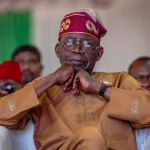In an effort to highlight the role of key stakeholders—including lawmakers, government MDAs, and regulators—in translating policy into action and strengthening the regulatory environment for civil society organizations (CSOs) in the Southwest, CSOs across the region gathered for the 2025 Regional Conference in Ibadan.
The conference also focused on introducing the CSO community to tools that facilitate compliance and establishing a regional task force for coordination. It sought to create a sustainable environment where CSOs can operate effectively, free from the regulatory constraints highlighted during the 2024 iteration of the conference.
Chairman of the Global Rights Governing Board, Professor Chidi Odinkalu, stated in his welcome speech that any functioning society must provide its citizens with a platform to voice concerns about social injustices—something that civil society organizations help constructively achieve.
Professor Odinkalu, who acknowledged the enormous contributions made by CSOs to Nigeria’s socio-economic development, emphasized that all parties involved are partners in improving society for everyone, which is why cooperation is essential.
He advised CSOs to remain law-abiding but also called for a legal framework that would support the growth of civil society in the region.
Earlier, Senator Anthony Siyako Yaro, Vice Chairman of the Senate Committee on Diaspora and NGOs, expressed gratitude for CSOs’ persistent efforts to improve society despite difficult obstacles.
However, the senator noted that to align with contemporary legislation and global best practices, it had become imperative to strengthen the regulatory environment.
Senator Yaro said he is confident that Nigeria can create a supportive atmosphere that will enable CSOs to flourish and deliver significant outcomes.
Similarly, the Chairman of the Conference of Speakers of State Legislatures in Nigeria and Speaker of the Oyo State House of Assembly, Honourable Adebo Ogundoyin—represented by Honourable Abiodun Babalola—pledged to support laws that would create a conducive environment for CSOs to operate effectively in the state.
Also speaking, the Chief Judge of Oyo State, Justice Iyabo Yerima—represented by Hon. Justice M.O. Ishola—stated that the advocacy for clarifying Item 32 in the 1999 Constitution, whether through judicial interpretation or legislative amendment to move it to the Concurrent List, was a pursuit of legal certainty that the judiciary supports in principle.
In his remarks, Head of Cooperation, European Union Delegation to Nigeria and West Africa, Mr. Massimo De Luca, expressed confidence that the outcome of the conference would lead to improved performance by CSOs across Nigeria.
Contributing to the discussion, Co-Chair of the Community of Practice on Civic Space Strengthening, Dr. Abiola Akiyode-Afolabi, urged all levels of government to view CSOs’ efforts as complementary to government agendas aimed at creating a safe, viable, and conducive society.
Other stakeholders, including Professor Adekunle Adedeji, Mrs. Toyin Ogedegbe, and Mrs. Omolara Balogun, participated in various panel discussions addressing topics such as “Innovative Strategies for Navigating Shrinking Funding for CSOs in South-West States” and “Sustaining Partnerships Towards Legislative and Regulatory Action for Improved CSO Operations.”
The conference, facilitated by the European Union, Global Rights, and the Community of Practice on Civic Space Strengthening, had as its theme: “Scaling Policy to Action – Strengthening the Regulatory Environment for Sustainable CSO Operations in the South West Region.”
WATCH TOP VIDEOS FROM NIGERIAN TRIBUNE TV
- Relationship Hangout: Public vs Private Proposals – Which Truly Wins in Love?
- “No” Is a Complete Sentence: Why You Should Stop Feeling Guilty
- Relationship Hangout: Friendship Talk 2025 – How to Be a Good Friend & Big Questions on Friendship
- Police Overpower Armed Robbers in Ibadan After Fierce Struggle






